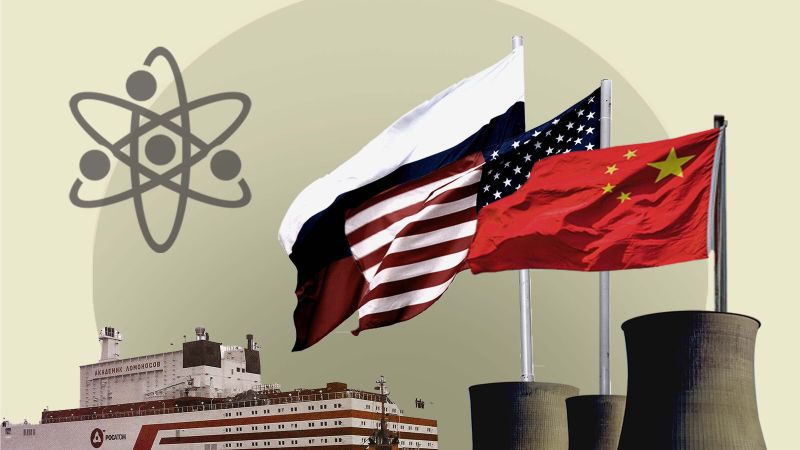Off the Siberian coast, not far from Alaska, a Russian ship has been docked at port for four years. The Akademik Lomonosov, the world’s first floating nuclear power plant, sends energy to around 200,000 people on land using next-wave nuclear technology: small modular reactors.
This technology is also being used below sea level. Dozens of US submarines lurking in the depths of the world’s oceans are propelled by SMRs, as the compact reactors are known.
SMRs — which are smaller and less costly to build than traditional, large-scale reactors — are fast becoming the next great hope for a nuclear renaissance as the world scrambles to cut fossil fuels. And the US, Russia and China are battling for dominance to build and sell them.



No matter which angle I approach the topic from, it always comes back to this:
“findings suggest that the cost per kilowatt (KW) for utility-scale solar is less than $1,000, while the comparable cost per KW for nuclear power is between $6,500 and $12,250. At present estimates, the Vogtle nuclear plant will cost about $10,300 per KW, near the top of Lazard’s range. This means nuclear power is nearly 10 times more expensive to build than utility-scale solar on a cost per KW basis.”
https://www.energysage.com/about-clean-energy/nuclear-energy/solar-vs-nuclear/
I just don’t see how this makes any economic sense. Sure, we could go all in on new nuclear and it would work fine but I don’t want to pay for that, I want cheap renewable power.
Then there’s this:
https://www.reuters.com/business/energy/high-river-temperatures-limit-french-nuclear-power-production-2023-07-12/
Building a plant with a lifecycle of 30-50 years seems like a bad idea when our world is getting more and more unpredictable. We’ve got climate change, we’ve got Putin fucking around with 6 reactors in Ukraine, earthquakes, tsunamis, human error, etc.
If a wind turbine catches fire, it’s not that big of a deal.
shits expensive because those plants are older, more complicated, and riddled with constructions issues. Literally all we have to do is just build more of them, and it will go away.
Or if that doesnt satisfy you, a one time government subsidy for the building costs will drastically improve it. (most of the cost is upfront after all.)
I’ve shown the data, there’s no economic case. Not to be an ass but your post reads like nuclear fanfic rather than a persuasive argument for new nuclear.
yes, i know, but it’s more complicated than “just data” modern reactor designs are orders of magnitude simpler than previous designs, modern reactor issues are primarily construction related (a solvable issue) Nuclear is a particularly apt solution to the problem if done correctly.
Solar/wind IS cheaper, but solar and wind also have problems. Solar is more complicated at scale. You need to start balancing production/consumption on either side, neither of which are consistent. recycling and waste disposal is another big concern. Solar panels for instance consume tons of different rare earth metals, and materials that are hard to manufacture, dangerous for humans to work with, and complicated to get rid of. And add on top of that energy storage.
There isn’t a “good” solution, merely a lot of different solutions, some more apt than others, sometimes it depends on the situation.
maybe i’m a little autistic about nuclear power, but you cannot deny it’s potential application in the power production infrastructure. There is absolutely a case to be made there.